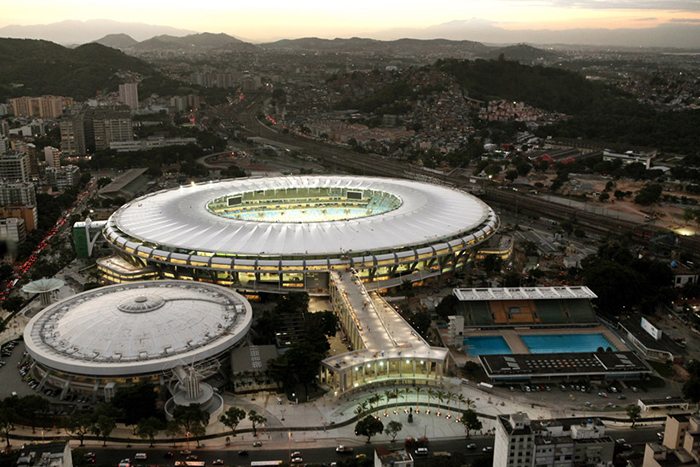You already familiar with the stadiums hosting the 20th edition of the soccer World Cup. But do you know the Constructors and architects who built these beautiful football templates
Today we take a look at Estádio do Maracanã which is the largest stadium in Brazil. The Maracana is an open-air stadium in Rio De Janeiro, Brazil. Named after the Maracana region, the stadium was built in 1950
Estimated cost: costs are mounting quickly: R$ 500 million (December 2009), R$ 720 million (June 2010), R$ 1 billion (May 2011).Rio has a historic of corruption to build public stadiums. When Rio organized the Pan American Games of 2007, the initial estimated budget was around US$ 200 million, and the actual cost ended up being ten times that amount. The cost Maracana stadium alone was nearly US$ 200 million, money which should suffice to prepare the venue for the Olympic Games of 2016.
The Maracana was originally built using reinforced concrete. It has an oval shape and consists of two tiers divided by medium-sized open boxes. A cantilevered roof spanning 30m covers 34 rows at the rear of the stadium.
The renovation focused on visibility, accessibility, safety and hospitality. While most of the stadium was reformed, the original blue facade and the rear space of the stadium was preserved. As per the recommendations of FIFA, the stadium’s capacity was reduced from the current 87,000 to 73,500. A roof to cover the entire public area was added to the five-storey stadium.
The renovation converted the Maracana into a multi-purpose arena complete with bars, restaurants and shops. To boost accessibility and security, four ramps were constructed. Two existing ramps are also being reused. The upgrade allows for full evacuation of the stadium within just eight minutes.
The renovation was funded jointly by the National Bank for Economic Development (BNDES) and the State Government of Rio de Janeiro. BNDES provided 75% of the cost, with the remaining money sourced from the state government.
Design and architecture: the Public Works Department of Rio, Fernandes Arquitetos Associados and Schlaich Bergermann und Partner (this one worked also in Curitiba stadium).
Constructors: Andrade Gutierrez (also working in Manaus and Brasilia stadiums), Odebrecht (also in charge of Sao Paulo and Recife) and Delta (update: in April 2012, Delta quit the consortium; a Probing Comission in Brazilian Congress found out that Delta was closely linked to Carlos Cachoeira, charged of being involved in several cases of corruption and bribery).
Maracanã will stage seven matches of the World Cup, including the final match.

